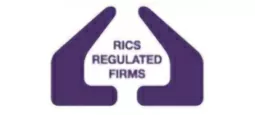
FAQ on Lease Extensions
As the lease term shortens, the value of the property may decrease, and it’s harder to sell or to remortgage. A longer lease grants the security of knowing that the owner won’t sell the property out from under you and the flexibility to sell or remortgage if the need arises.
You are typically eligible for a lease extension if you have been the owner of the property for at least 2 years and the remaining term of your lease is 21 years or more.
You can expect expert advice and support, fair negotiations, and transparent communication with the freeholder.
Several things contribute to the cost of a lease extension, including the property’s value, the amount of time left on the current lease, ground rent, and other payments due to the landlord. Legal and valuation costs are always involved, so that adds to the total.
First, you need to get in touch with a solicitor or a leasehold specialist who can help you with the process. They will advise you and ensure you understand what to do. Next, you need to get a valuation of the lease extension. Finally, you serve a notice on the freeholder to let him know that you are proposing to extend the lease and to inform him of the terms you are proposing.
You can extend the lease by doing the following:
- Get the assistance of a leasehold expert or solicitor.
- Instruct a surveyor to undertake a valuation of the property for the purpose of lease extension.
- Serve a Section 42 notice on the freeholder.
- Negotiate the terms and price of the lease extension.
- Complete the new lease agreement and register it with the Land Registry.
You may be turned down for a lease extension if you are not eligible, if you serve an incorrect Section 42 notice, or if you cannot agree on terms with the freeholder during the statutory arrangement period.
When the landlord is not available, ask the Leasehold Valuation Tribunal (First-tier Tribunal: Property Chamber) to issue a vesting order. This makes it possible to receive a leasehold extension even if the landlord is absent.
It means that a tenant who already has a lease works out a deal with the landlord to continue leasing the same property for a certain amount of additional time, without going through all the necessary steps required by law. This method does not necessarily result in an unsuccessful new lease but is quite flexible to use.
A lease extension valuation entails the assessment of certain factors to present an estimated cost to extend a leasehold. Competent and skilled surveyors conduct the actual valuations. They consider and determine the value of the property, the remaining time left on the lease, and any ground rent owed to arrive at a number that indicates what it will cost to secure an extension.
It is the increase in a property’s worth when the lease is lengthened. Specifically, it is the difference between what the property is worth with the current lease versus what it would be worth with a longer lease.
Numerous elements affect the necessary duration to extend a lease. Typically, the process to take anywhere from 6 to 12 months, with a 9-month average. The leaseholder typically initiates the process by sending a formal notification. Then, the parties to the lease must agree to the terms of the extension. If negotiations proceed without dispute, the payoff of the process can be quite worthwhile.
The “right to manage” exists to allow tenants to take over the management of their building from the landlord. Once the lessees obtain the right to manage, they govern the ongoing operation of the building and its maintenance.
Typically, it is not possible to extend a lease with a term of 999 years. However, if there is less than 80 years remaining at the time of application for a statutory lease extension, the lease can probably be extended under the Leasehold Reform, Housing and Urban Development Act 1993 by an additional term of 90 years.
The price you pay to extend your lease will depend on several things: how many years are left on your current lease, the value of your property, and the terms of the deal you are offered to extend your lease. It is recommended to get a professional lease extension valuation to ensure you are paying a reasonable premium.
Our panel of Registered Valuers in Manchester has ample experience in handling lease extension valuations. The experts can therefore provide a precise valuation to help a leaseholder in negotiating a fair price for extending their lease.
When a tenant qualifies for the statutory lease extension, the existing lease’s duration is increased by a minimum of 90 years. During this extension, the amount of rent payable is decreased to a nominal amount (usually zero).










Manchester Surveyors is a panel of Chartered Surveyors specializing in property surveys and valuations for residential and commercial clients. Serving Manchester and the surrounding areas, contact us for an RICS surveyor today.




